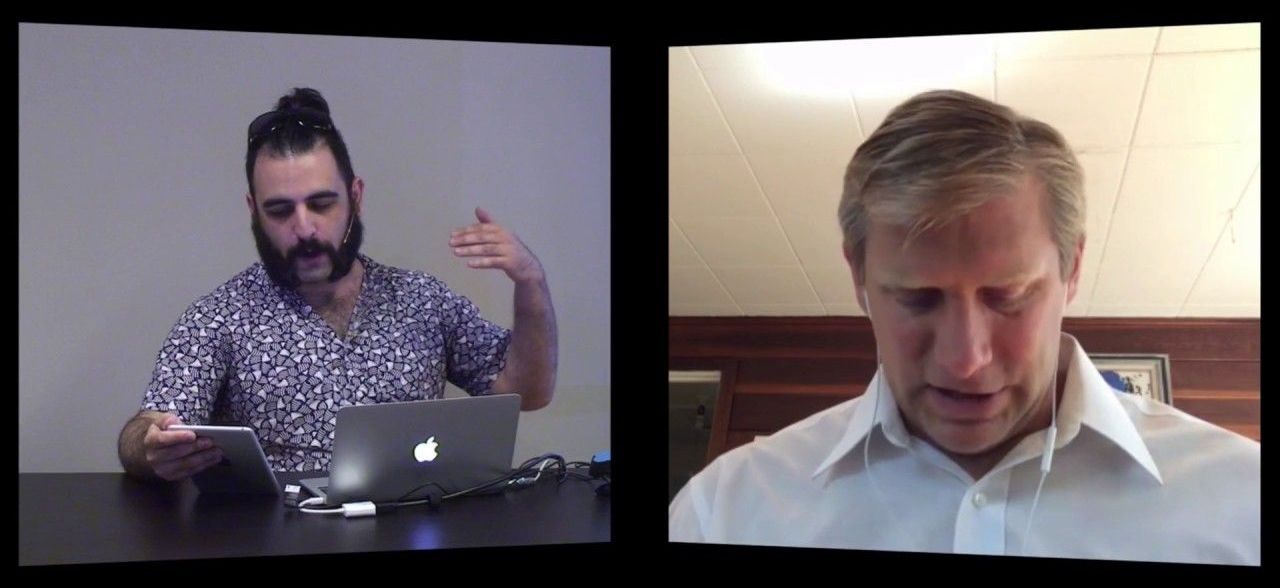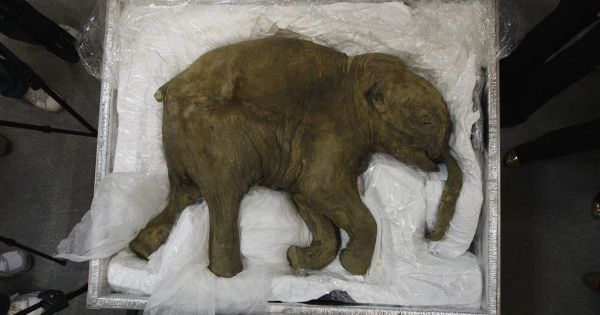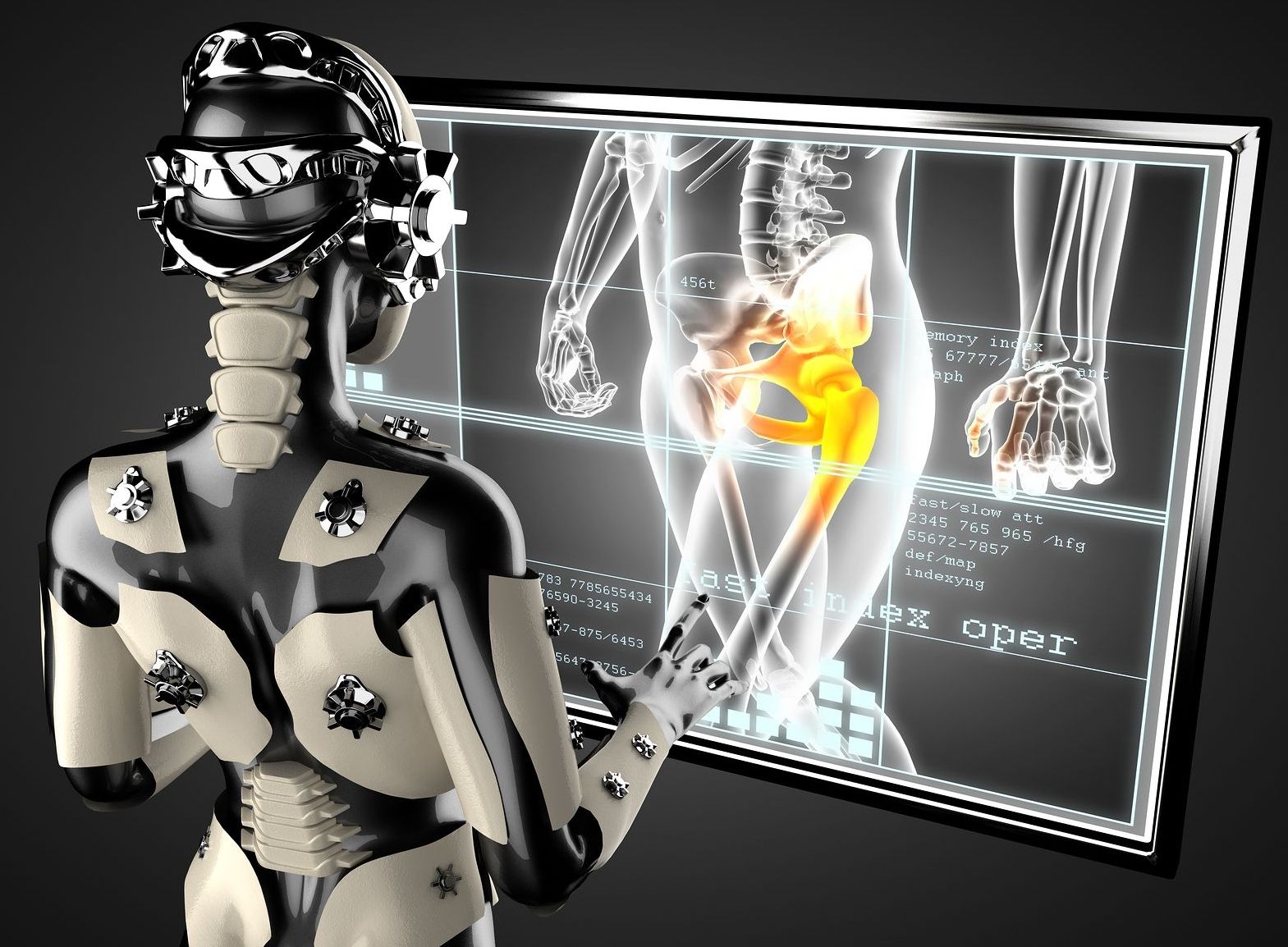Page 10300
Jun 26, 2017
Biologists Plan to Bring the Woolly Mammoth Back to Life by 2019
Posted by Shane Hinshaw in category: bioengineering
A team of researchers believe they could bring back the woolly mammoth from extinction within the next two years.
Jun 26, 2017
Dickson Despommier: Urban Agriculture and the Vertical Farm // Economy, People & Planet 2015
Posted by Odette Bohr Dienel in categories: engineering, environmental, science
Jun 26, 2017
Help Us Crowdfund the Cure for Aging — Be a Lifespan Hero: Join Us!
Posted by Steve Hill in categories: biotech/medical, life extension, neuroscience

Introducing Lifespan Heroes our new campaign.
Here at Lifespan.io we are funding research to help extend healthy human lifespan, supporting nonprofits and companies working to overcome age-related diseases. By becoming a “Lifespan Hero” you can join us in this humanitarian and necessary effort — http://www.lifespan.io/heroes — and help us end age-related diseases for good.
Continue reading “Help Us Crowdfund the Cure for Aging — Be a Lifespan Hero: Join Us!” »
Jun 26, 2017
Realtime Health Tracking Using Biosensor based Tattoos
Posted by Yugal Agrawal in category: health
Forget body trackers and smart watches or any fancy gadgets. These biosensor based tattoos to monitor your health dynamics in real time.
Jun 26, 2017
Rejuvenation is good for you
Posted by Nicola Bagalà in categories: biotech/medical, life extension
If you are not sure why you should support rejuvenation research, or know people who aren’t, this article explains why rejuvenation would be good for you as an individual.
The reasons why rejuvenation would be good for any given individual should be bleeding obvious. However, you’d be surprised how often people think it all boils down to ‘You’d live forever!’—which by the way is not granted and can be a bit of a controversial concept. The real reasons why rejuvenation would be good for you as an individual are the following.
The elderly of today aren’t exactly famous for their good health, nor for their ability to go about their lives easily and without help in even the simplest tasks. Old people have weaker bodies, weaker immune systems, are prey to a number of horrible diseases and chronic pain, and cannot take care of themselves with the same ease as they did when they were young. Pay attention next time you go downtown. You’ll see elderly people walking slowly and with difficulty, perhaps with the aid of a walker or a cane. They can’t hear well and they can’t see well. Climbing the stairs for them feels like more climbing a mountain. A young person can shake off the flu after a few days of discomfort; an old person may well die of the complications of it, because their weak immune system did not do a very good job. This is, in a nutshell, why young people can take care of themselves and old people end up in hospices or have to be watched over by their families.
Jun 26, 2017
9 Artificial Intelligence Startups in Medical Imaging
Posted by Klaus Baldauf in categories: biotech/medical, information science, robotics/AI
You don’t have to be a gambler to appreciate the complexities of the card game Texas Hold ‘Em. It involves a strategy that needs to evolve based on the players around the table, it takes a certain amount of intuition, and it doesn’t require the player to win every hand. Just a few days ago, an artificial intelligence (AI) algorithm named Libratus beat four professional poker players at a no-limit Texas Hold ‘Em tournament played out over 20 days.
If you have even the slightest understanding of how to write code, you would realize that it is impossible to actually code a software program to do that with such “imperfect information”. The AI algorithm did exceptionally well and was utilizing strategies that humans had never used before. Professional poker players are in no danger of losing their jobs, but the incredible capabilities of what AI is mastering these days should make everyone wonder just how safe their jobs actually are.
Let’s take the $3 billion medical imaging market. It’s no secret that AI is now performing certain medical imaging tasks better than human doctors. Pundits say “well, people will always trust a human doctor over an AI” and the answer we’d have to that is “not if the AI is going to give a more accurate answer “. It’s only a matter of time before every X-ray machine is connected to the cloud and one human doctor per hospital puts his hand on your shoulder when he reads you the output from the AI algorithm. Kind of like this:
Continue reading “9 Artificial Intelligence Startups in Medical Imaging” »
Jun 25, 2017
Here’s What Will Happen When We Connect Our Brains to the Cloud
Posted by Shailesh Prasad in category: neuroscience
Jun 25, 2017
Agah Bahari speaks with Zoltan Istvan @ Toronto Transhumanism Meetup
Posted by Zoltan Istvan in category: transhumanism

Recorded on Jun.06.2017 @ rangle.io
Zoltan Istvan: http://www.zoltanistvan.com
NEOHUMAN podcast: http://www.lil.fm/neohuman
Continue reading “Agah Bahari speaks with Zoltan Istvan @ Toronto Transhumanism Meetup” »
Jun 25, 2017
The Four Immortality Stories We Tell Ourselves
Posted by Derick Lee in categories: education, life extension, neuroscience
Since the moment humans became aware of their existence, they have been haunted by the knowledge that it will inevitably come to an end and the hope to change this unfortunate fate.
This month, during Brain Bar Budapest – Europe’s leading conference on the future – Stephen Cave talked about the four immortality stories we tell ourselves and how they are changing in the context of new scientific discoveries and technological advancements. Stephen Cave spent a decade studying and teaching philosophy, and was awarded his PhD in metaphysics from the University of Cambridge in 2001. He is Executive Director of the Leverhulme Centre for the Future of Intelligence and Senior Research Associate at the University of Cambridge.

Continue reading “The Four Immortality Stories We Tell Ourselves” »














